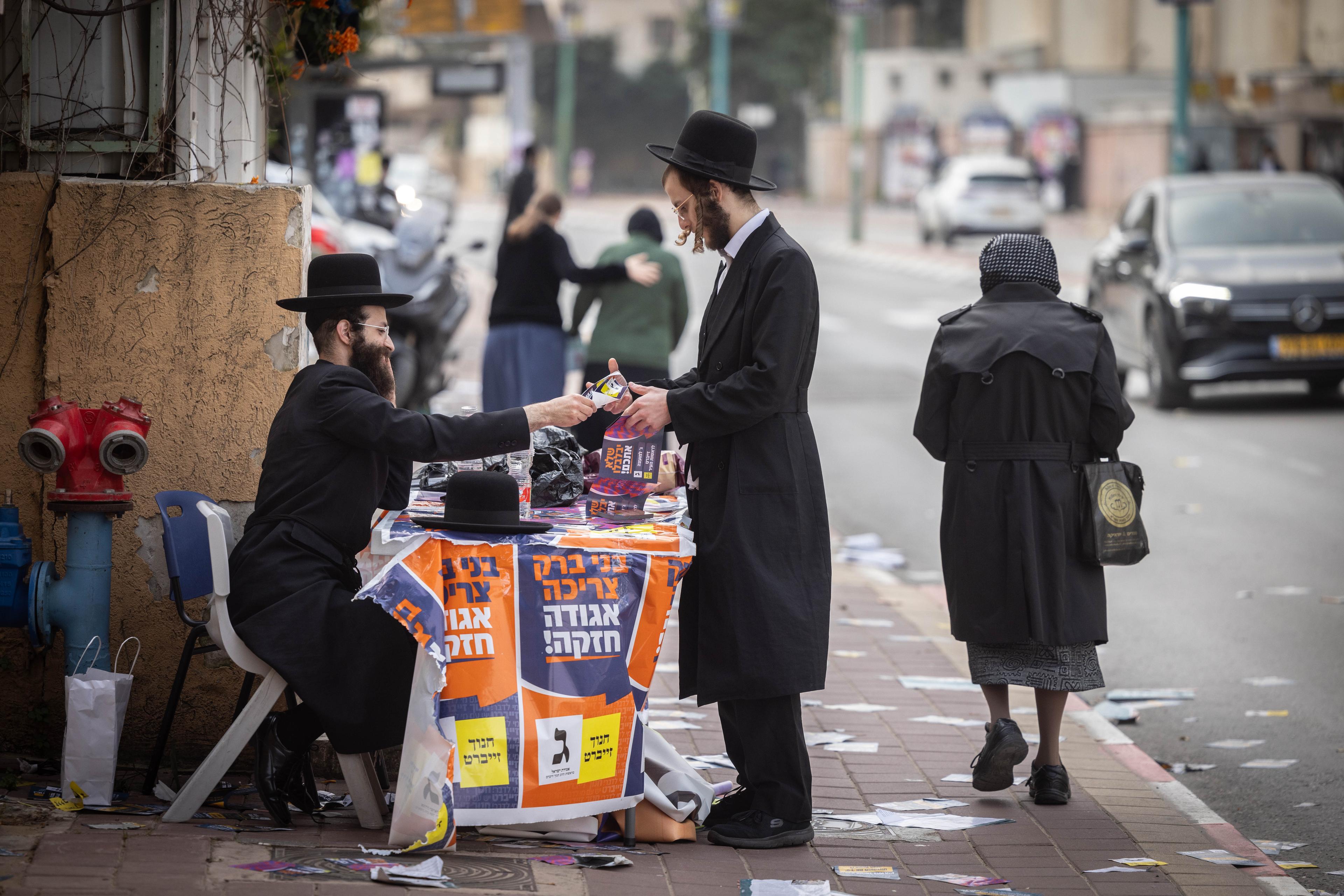Does the IDF REALLY want the Haredim?!
REJECTED WARRIORS "We begged to fight, but the IDF said no": Haredi men break their silence
Just when you though you knew everything about the ultra orthodox NOT answering the call to serve, along come 2 people who (thankfully) turn this narrative on its head.

The narrative about Haredim dodging military service just got complicated. In a small Jerusalem café, far from the heated Knesset debates about Haredi conscription, two ultra-Orthodox men tell a story that challenges everything we think we know.
"I really want to join the army," says Chaim (name changed), a rising star in the Haredi literary world. His latest poetry collection is earning acclaim in ultra-Orthodox circles, but his eyes light up most when talking about his father and brother's military service. "I'm exceptionally proud of them."
Despite receiving a medical exemption, Chaim has repeatedly tried to volunteer. "I've used every connection, every possible protektzia. I've literally begged them to take me," he says, his voice breaking slightly. "But they keep refusing."
The rejection stings more because of his unique position in the Haredi world. "I could have been a bridge between worlds," he explains. "Someone who shows you can be both fully Haredi and serve your country. But they won't even give me the chance."
Even more revealing is Dovid's story. After October 7th, he was among 3,000 Haredim who approached the IDF, ready to serve. The army accepted just 200.
"I would have gone even if the gedolim said no," Dovid states flatly, referring to the leading rabbinical authorities. It's a stunning admission from a Haredi man. "When Jews are being slaughtered, you don't ask questions. You grab a gun and defend them."
His frustration boils over when discussing the IDF's response. "They could have transformed Haredi society's view of the army overnight. Imagine 3,000 Haredim in uniform - the impact that image would have had on our community."
He leans forward, intense. "Even if they didn't need us in combat, we could have filled support roles, freeing up others to fight. But they weren't interested."
"It makes me think this whole debate is a farce," he concludes bitterly. "Politicians love using us as a punching bag, claiming we won't serve. But when we actually try? Suddenly there's no room, no interest. Makes you wonder what game they're really playing."
These testimonies raise disturbing questions about Israel's approach to Haredi integration. While politicians thunder about ultra-Orthodox draft dodging, are they actually prepared for mass Haredi enlistment? Or does maintaining the status quo serve certain political interests?
As we finish our coffee, Chaim shares one final thought: "Everyone talks about forcing Haredim to serve. Nobody talks about the Haredim begging to serve and being turned away. That story doesn't quite fit the narrative, does it?"